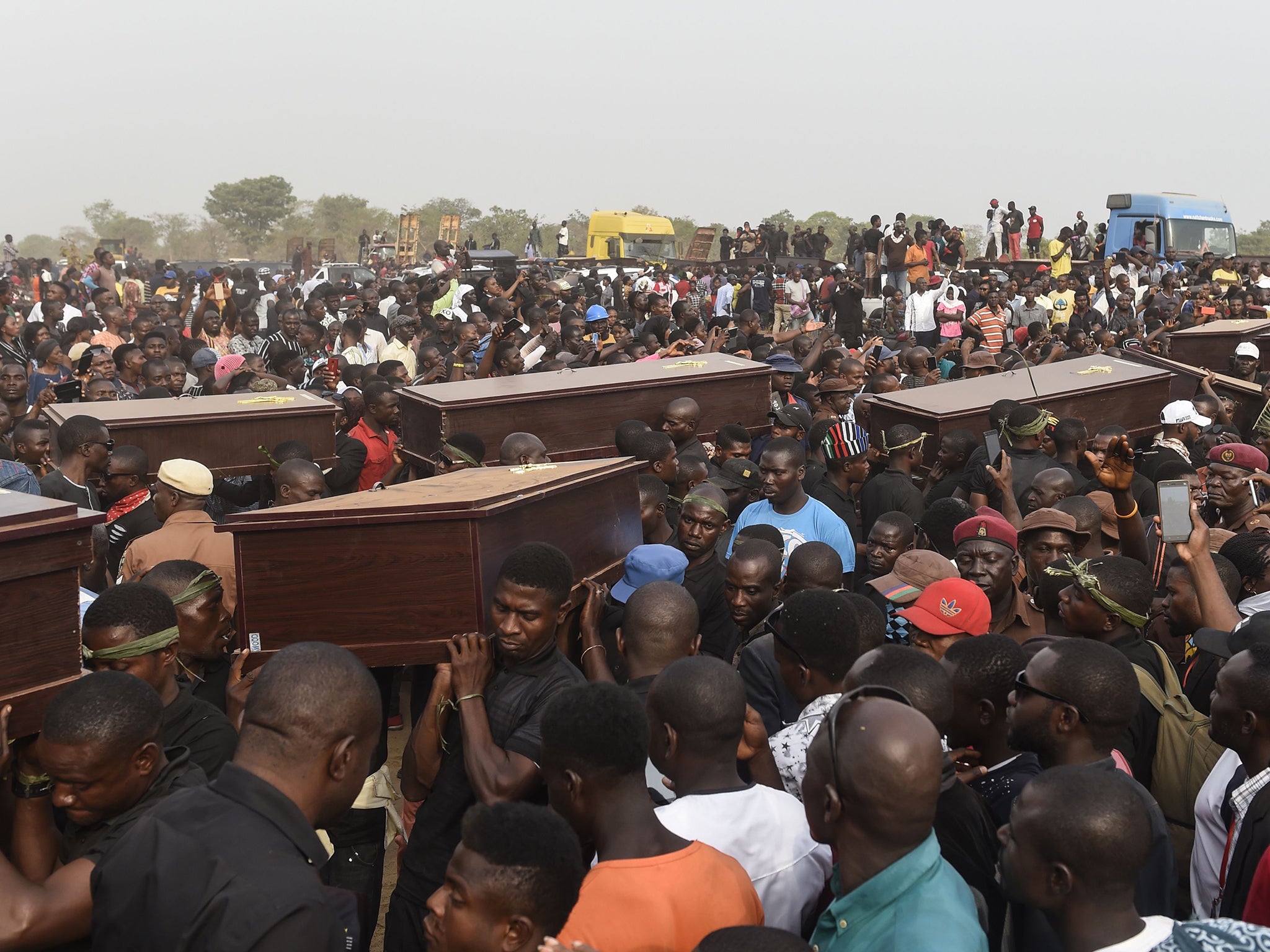Children among thousands ‘slaughtered’ in clashes between herders and farmers in Nigeria, warns Amnesty
‘My wife was slaughtered, they opened her stomach and brought out the baby and slaughtered it,’ witness says

Your support helps us to tell the story
From reproductive rights to climate change to Big Tech, The Independent is on the ground when the story is developing. Whether it's investigating the financials of Elon Musk's pro-Trump PAC or producing our latest documentary, 'The A Word', which shines a light on the American women fighting for reproductive rights, we know how important it is to parse out the facts from the messaging.
At such a critical moment in US history, we need reporters on the ground. Your donation allows us to keep sending journalists to speak to both sides of the story.
The Independent is trusted by Americans across the entire political spectrum. And unlike many other quality news outlets, we choose not to lock Americans out of our reporting and analysis with paywalls. We believe quality journalism should be available to everyone, paid for by those who can afford it.
Your support makes all the difference.Children have been “slaughtered” and people burnt to death in violent clashes between Muslim cattle herders and Christian farmers in Nigeria, according to Amnesty International.
At least 3,641 people have died over the last three years and thousands more have been displaced, the human rights charity said in a report on the growing conflict.
“My wife was slaughtered, they opened her stomach and brought out the baby and slaughtered it,” one man who witnessed one of the deadliest attacks on the Fulani herder communities in Taraba state told Amnesty.
Recalling the attack, which began on 17 June 2017 and lasted for four days, he added: “My kids were slaughtered also. I was with their dead bodies for three days in the bush before the soldiers came.
“My father was burnt in front of the mosque where he prayed. They killed him there and burnt him.”
Deadly clashes between herders and farmers in central Nigeria have become an increasing concern in Africa’s most populous country, which is roughly split between Muslims in the north and Christians in the south. Some fear the clashes have become deadlier than Boko Haram’s extremist insurgency.
Amnesty’s report, titled Harvest of Death: Three Years of Bloody Clashes Between Farmers and Herders, uncovers what the group described as “a pattern of appalling killings by both farmers and herders”.
Based on more than 200 interviews, the report found at least 310 attacks were recorded between 5 January 2016 and 5 October 2018.
Villages said they lost everything after their homes were burnt and their food supplies stolen by their attackers.
Many of the women interviewed for the report discussed losing their husbands and having to raise their children alone.
One woman said she ran and hid in an old latrine pit when Zilian village in Kaduna state was attacked on 20 February, 2017, during which her husband was killed and her six-year-old daughter severely burnt.
“When they left, I dragged myself out of the pit and went home ... When I got home, everywhere was under fire,” she said. “They burnt the house and everything was on fire and still burning. I saw my husband’s corpse on the floor.”
Amnesty said Nigerian security forces, which were often positioned close to the attacks, had been “slow to act” and in some cases “did nothing to prevent the killings, looting or burning of homes”.
It said numerous communities reported they had alerted to security forces to impending attacks but no action was taken. The group has shared its findings with the government and requested further information.
“The Nigerian government has displayed what can only be described as gross incompetence and has failed in its duty to protect the lives of its population,” Osai Ojigho, director of Amnesty International Nigeria, said.
“Our research shows that these attacks were well planned and coordinated, with the use of weapons like machine guns and AK-47 rifles. Yet little has been done by the authorities in terms of prevention, arrests and prosecutions, even when information about the suspected perpetrators was available.”
He added: “The root cause of this conflict has nothing to do with religion or ethnicity; it is largely about land and access to grazing. But in some places, because of the failures of the security forces, competition over resources is used as a pretext to kill and maim along ethnic or religious lines.
“The conflict has been dangerously politicised by some state government officials who have inflamed tensions by embarking on a blame game along political party lines.”
Join our commenting forum
Join thought-provoking conversations, follow other Independent readers and see their replies
Comments